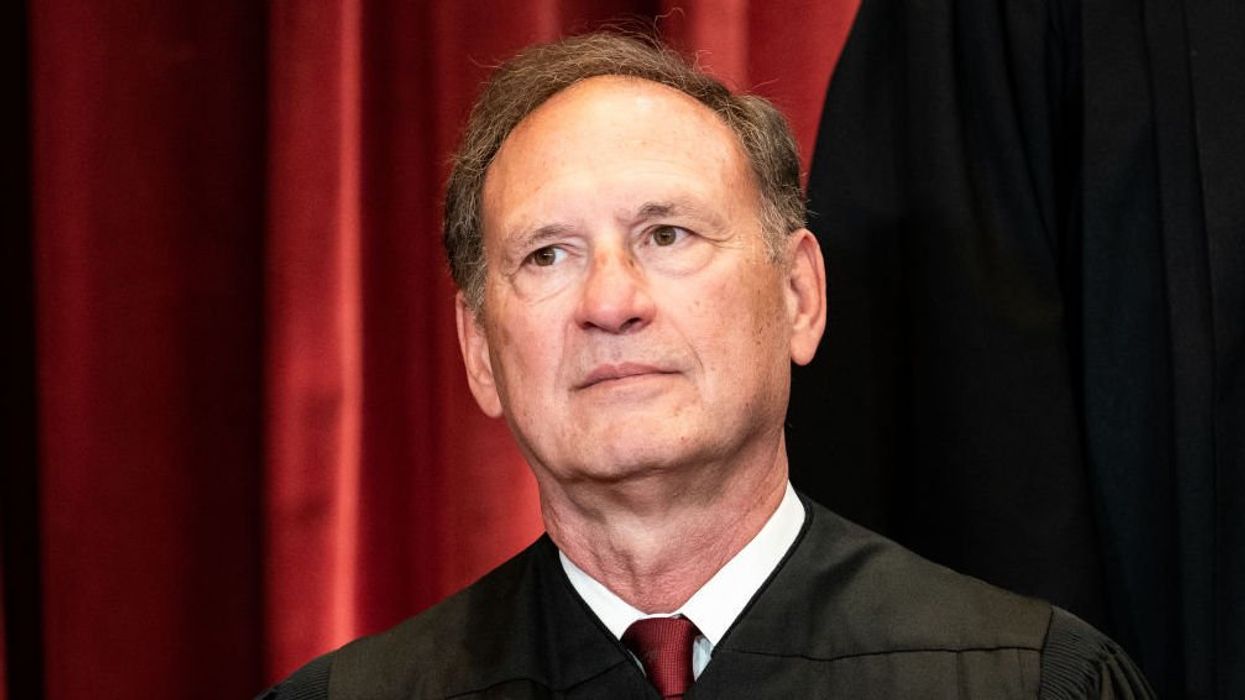
Erin Schaff-Pool/Getty Images

Supreme Court Justice Samuel Alito said Friday he will not recuse himself from a forthcoming case in response to demands from Senate Democrats.
In an unusual move, Alito publicly responded to a letter that Democrats on the Senate Judiciary Committee sent Chief Justice John Roberts last month. That letter demanded that Alito recuse himself from Moore v. United States, a tax case on the Supreme Court's docket for the upcoming term.
Democrats argued that Alito is ethically obligated to recuse himself from the case because he participated in two interviews with the Wall Street Journal. The byline on those stories included James Taranto, an editor at the newspaper, and lawyer David Rivkin, who represents the petitioner in Moore.
The Democrats made highly inflammatory and suggestive allegations, writing:
Mr. Rivkin’s access to Justice Alito and efforts to help Justice Alito air his personal grievances could cast doubt on Justice Alito’s ability to fairly discharge his duties in a case in which Mr. Rivkin represents one of the parties.
The relationship between Justice Alito and Mr. Rivkin is also concerning because Mr. Rivkin is counsel for Leonard Leo with regard to this Committee’s investigation into Mr. Leo’s actions to facilitate gifts of free transportation and lodging that Justice Alito accepted from Paul Singer and Robin Arkley II in 2008.
Their argument, Alito responded, is "unsound."
"When Mr. Rivkin participated in the interviews and co-authored the articles, he did so a journalist, not an advocate," Alito explained. "The case in which he is involved was never mentioned; nor did we discuss any issue in that case either directly or indirectly. His involvement in the case was disclosed in the second article, and therefore readers could take that into account."
According to Alito, Supreme Court justices have a long history of participating in interviews with "media entities that have frequently been parties in cases before the Court." He also noted that many of his Supreme Court colleagues "have been interviewed by attorneys who have also practiced in this Court" — but none of those resulted in or required recusal.
Alito, therefore, argued the demand for his recusal is prejudiced by a presumption that his vote in Moore will be tainted when there is no evidence to suggest that will happen.
Respectfully exposing the absurdity of the recusal demand, Alito then noted that Supreme Court cases routinely involve "cases in which one or more of the attorneys is a former law clerk, a former colleague, or an individual with whom we have long been acquainted" and briefs filed by members of Congress who supported or opposed the justices' nominations and who have praised or criticized their decisions.
"If we recused in such cases, we would regularly have less than a full bench, and the Court's work would be substantially disrupted and distorted," he explained.
The duty of a justice, then, is to put aside personal connections and anything that would bias their work, Alito said.
"And that is what we do," he declared. "For these reasons, there is no sound reason for my recusal in this case, and in accordance with the duty to sit, decline to recuse."
Like Blaze News? Bypass the censors, sign up for our newsletters, and get stories like this direct to your inbox. Sign up here!